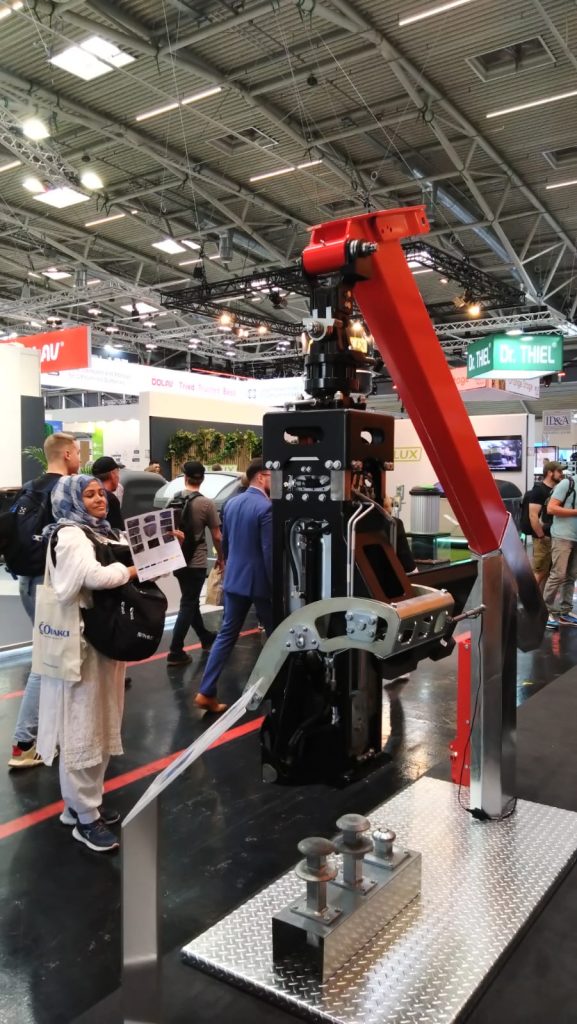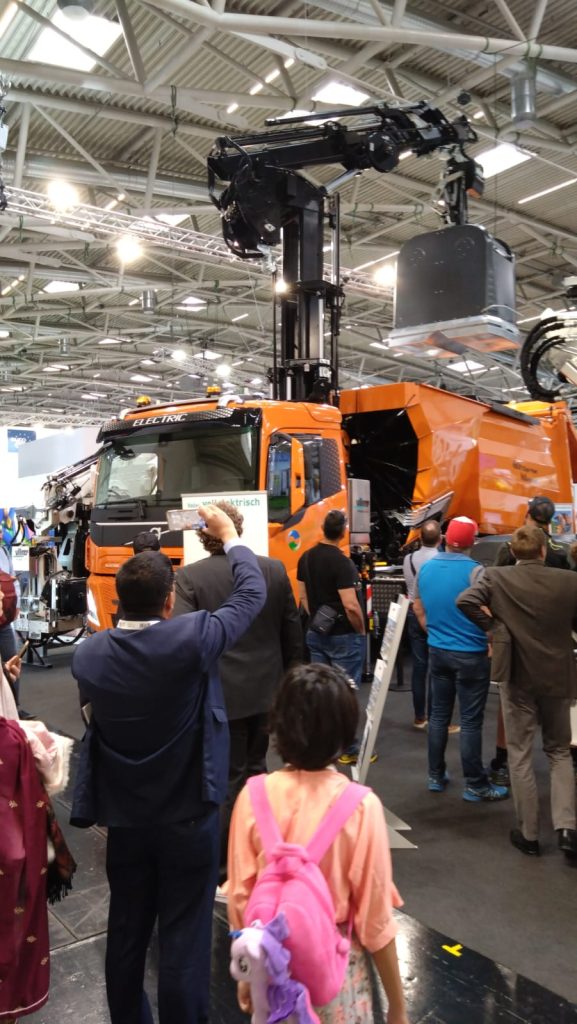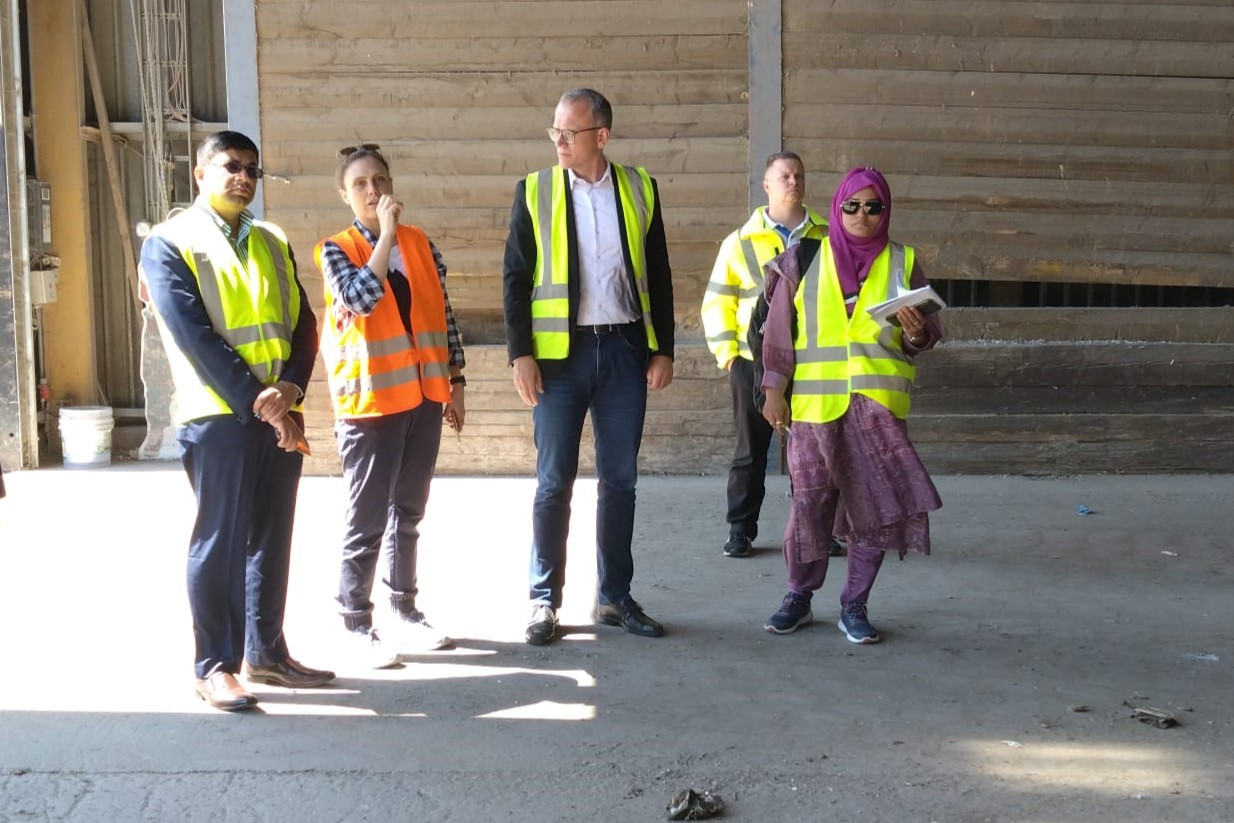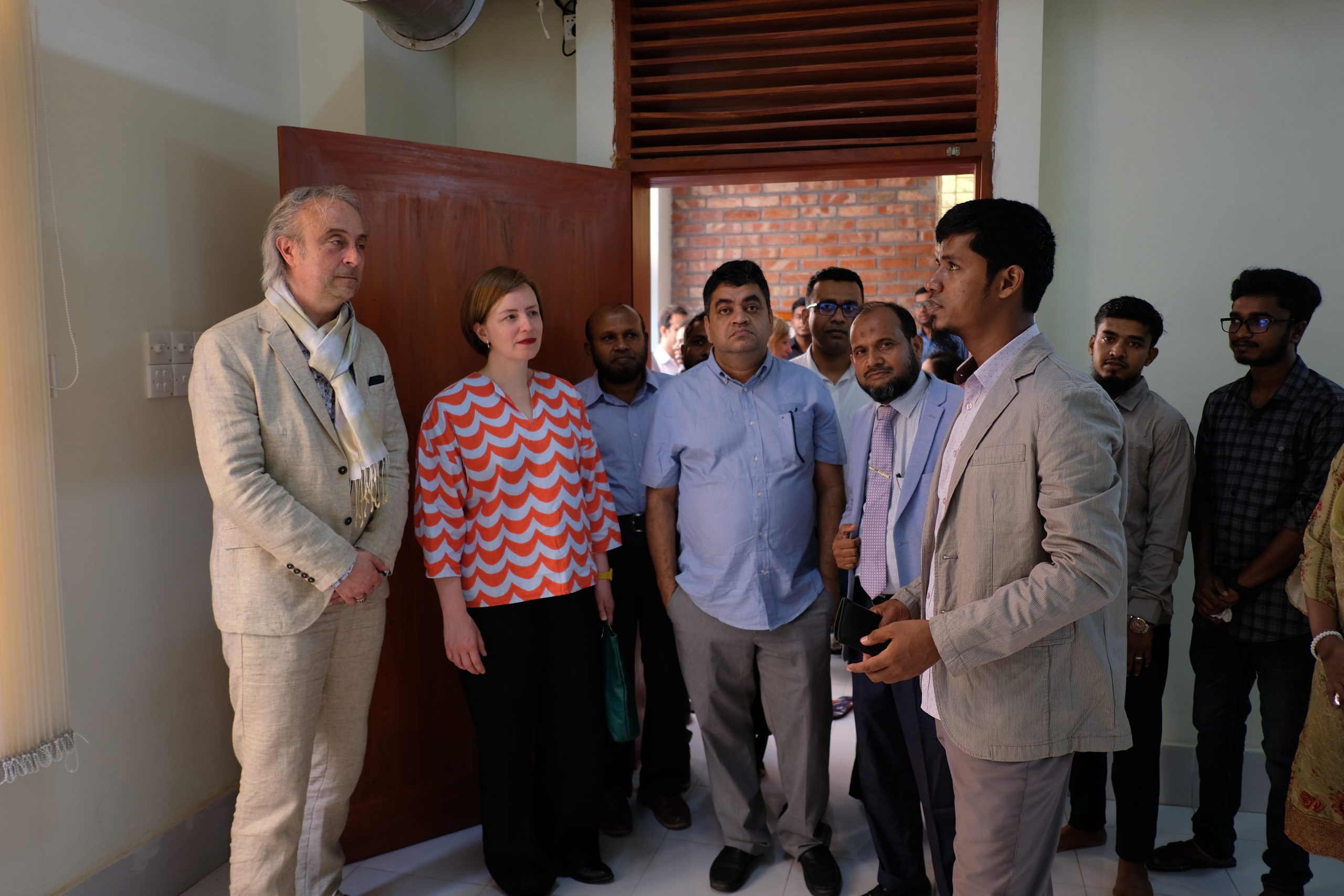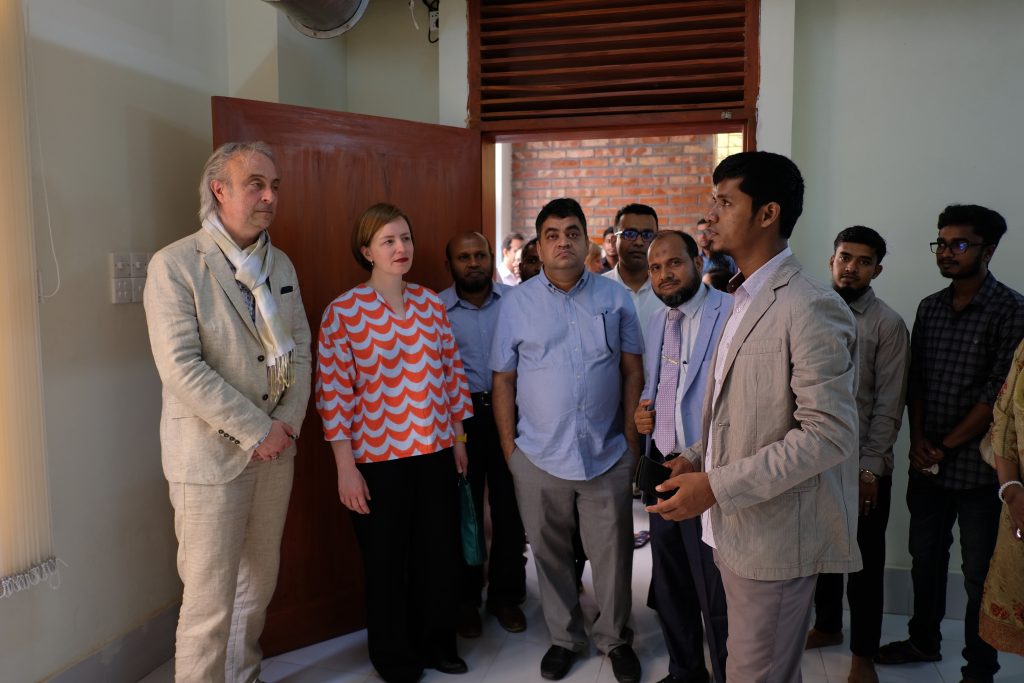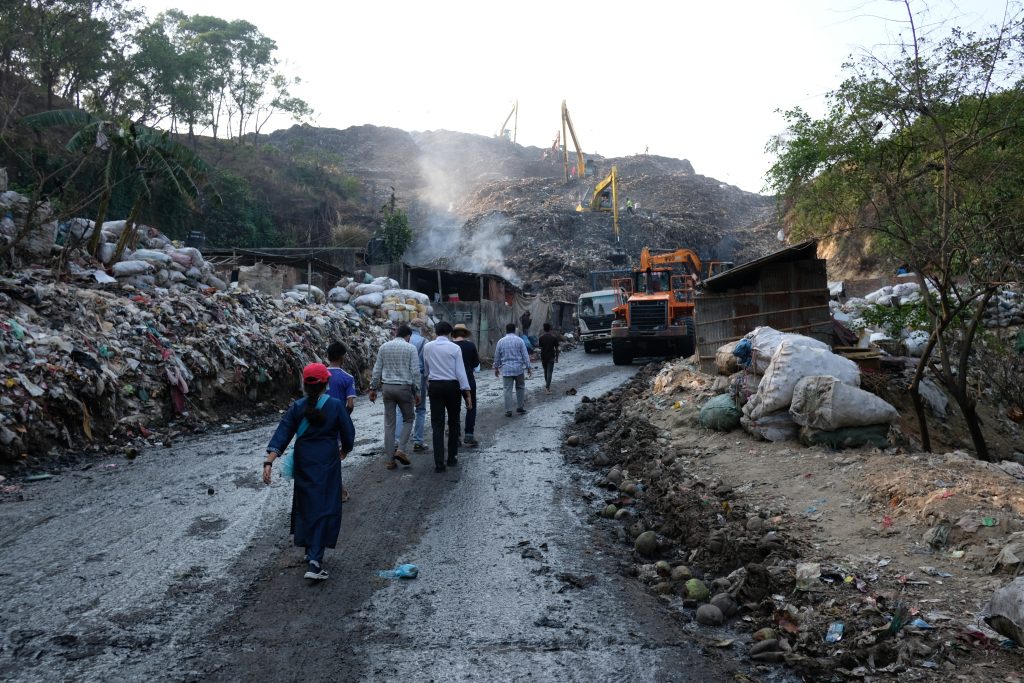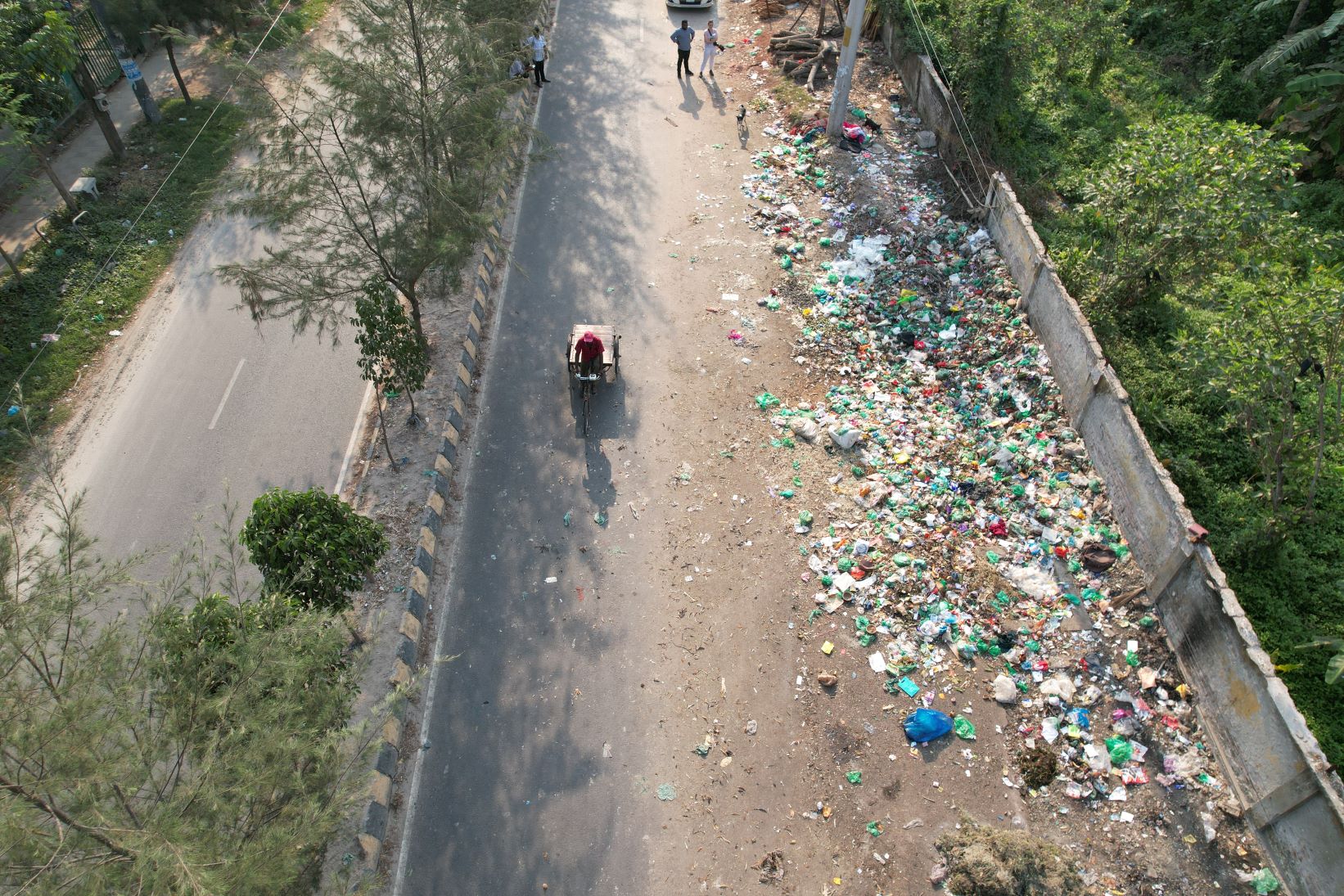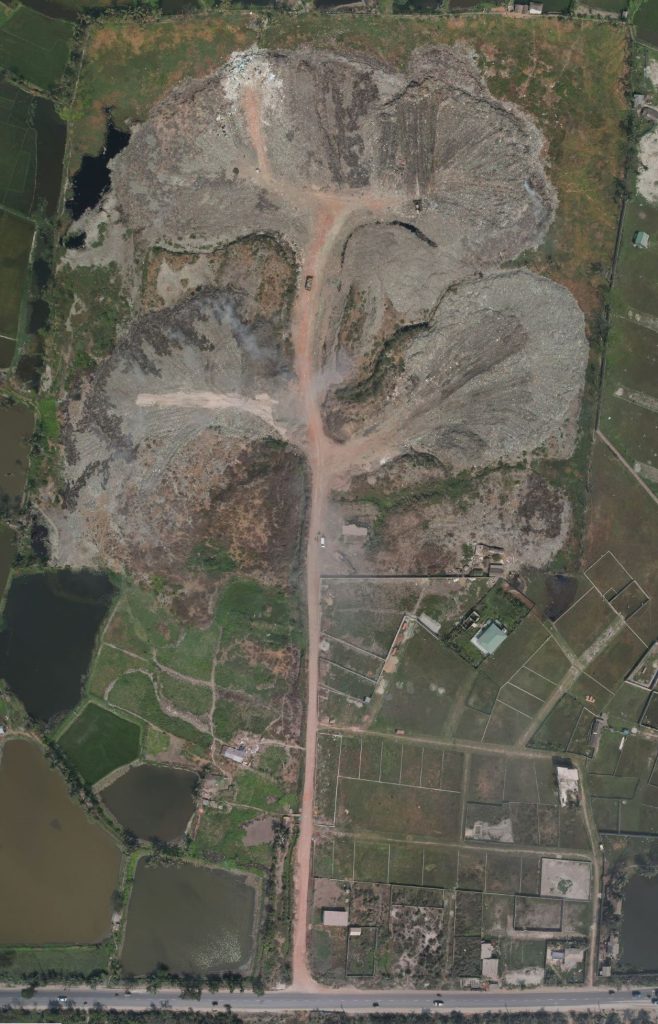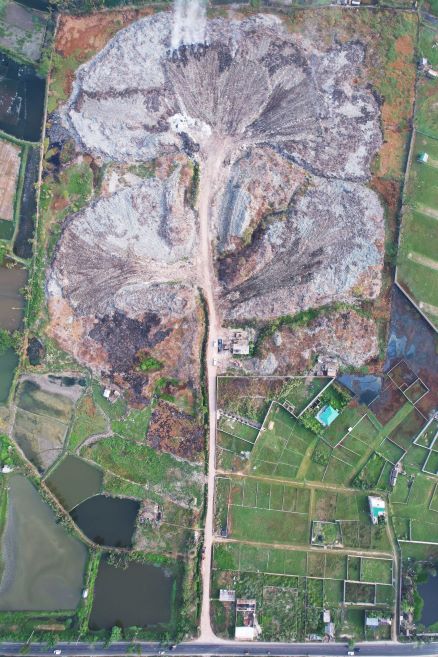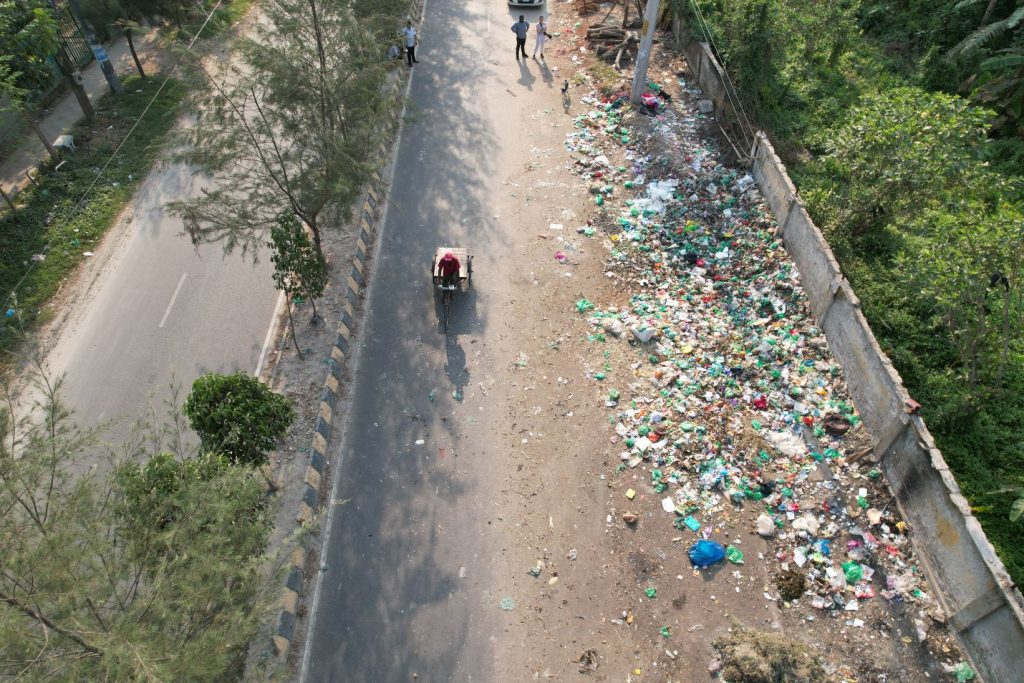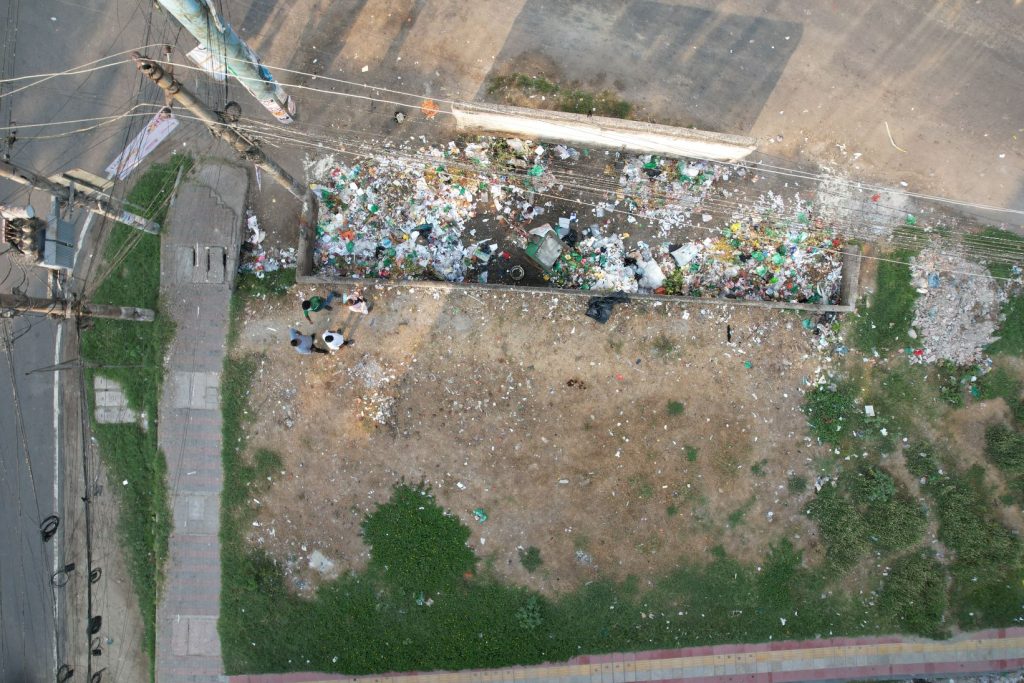We were excited to facilitate a visit of our KCC key stakeholders, Mr Abir Ul Jabbar (Head of the Planning Department) and Ms Nurunnahar Anni (Conservancy Officer), to the German project partners in Weimar and Frankfurt and the IFAT trade fair in Munich.
Capacity building without a common understanding is challenging: waste transfer stations look different in Germany from the ones in Bangladesh. When colleagues in Bangladesh envision a waste sorting facility, their ideas might differ from what the German team understands. Thus, the visit of our KCC partners was an excellent opportunity to visit solid waste infrastructure in Germany and discuss differences, similarities and possible applications in Bangladesh. Highlights included the excursion to the composting plant in Umpferstedt close to Weimar and the residual waste treatment plant in Halle-Lochau.
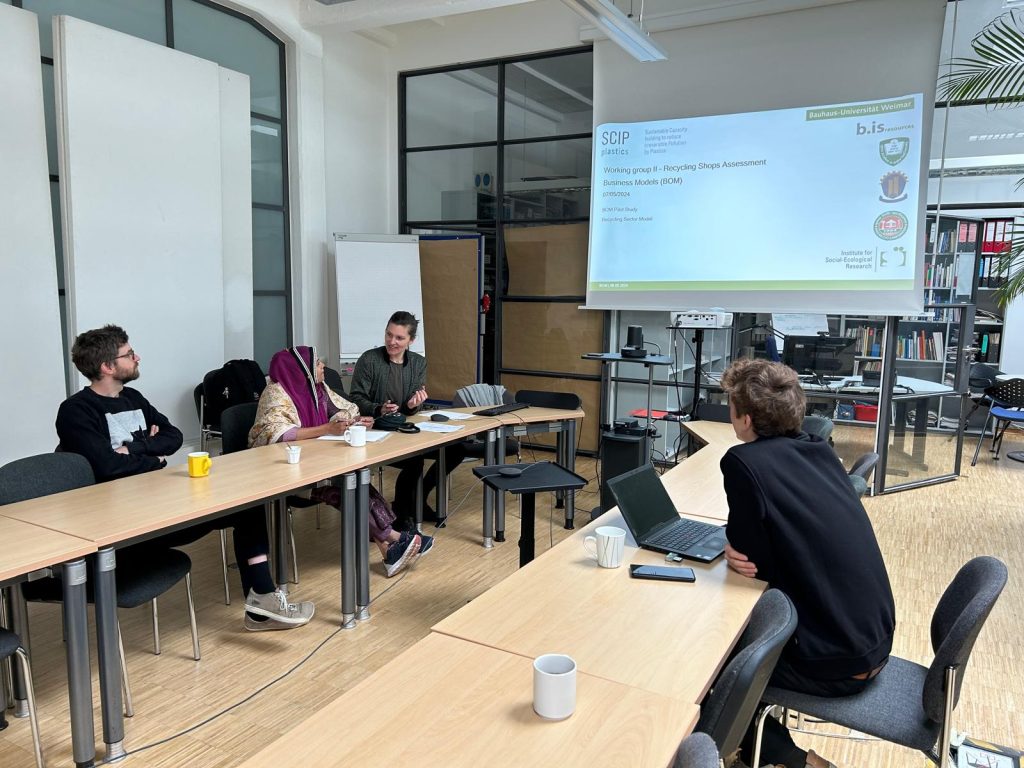
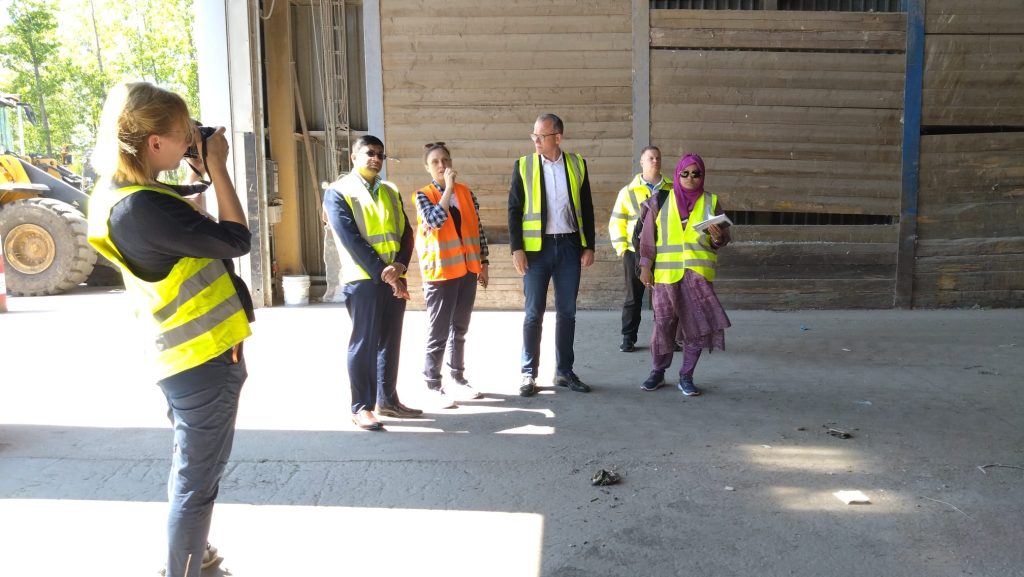
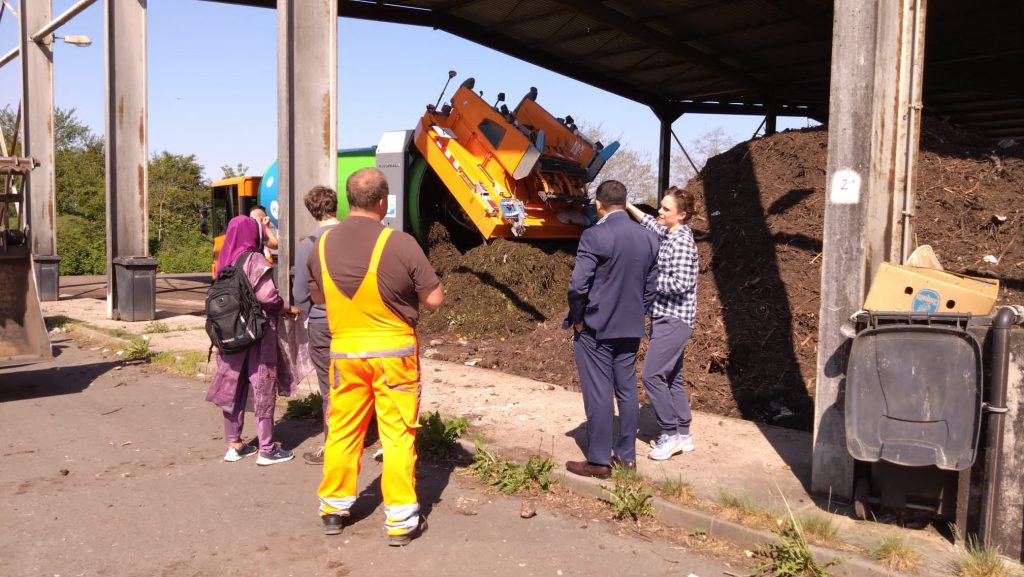
The trip through Germany from 10.05. to 16.05.2024 ended with a visit to the IFAT trade fair in Munich. Together, we explored the latest inventions and applications in solid waste collection, sorting, composting and recycling.
